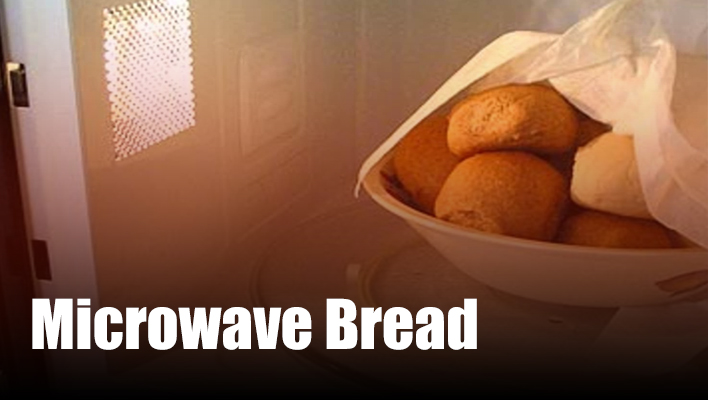We consume bread in different ways on a daily basis as bread is a remarkably versatile food item. Bread can be enjoyed in numerous ways at home, such as sandwiches, side dishes, appetisers and even base for pizza.
One of the most popular ways to prepare bread is microwaving. However, microwaving bread can make it dry and hard.
Is it possible to microwave bread without it getting hard? How to heat bread in the microwave without drying it? In this blog post, we will share 3 hacks to help you microwave bread without it getting hard.
Why Will Bread Become Dry After Microwaving?
We can agree on the fact that microwaving bread can make it dry and hard. But how did it happen?
The microwaves generated by the microwave oven cause the water molecules in food to vibrate. And this process creates heat, so the food would be cooked. While producing heat, the moisture is quickly removed from the bread during the microwaving process, and this makes the bread less soft and sometimes even hard and chewy.
Now we know the reason why the bread would go hard and dry, then we can take actions to avoid this.
How to Microwave Bread Without it Getting Hard?
We are going to show you 3 hacks to microwave bread without it getting hard, and they are incredibly easy.
Method 1.
This method might be the easiest one of all, and everything needed is easy to get in every kitchen.
Place the bread in the microwave like you would usually do, and place one bowl of water beside it.
You will want to use a microwave-safe bowl for the water so it won’t cause any danger. And when you start cooking, the water in the bowl could keep the air in the microwave moist, and provide your bread with extra moisture during the cooking process.
Therefore, the bread won’t lose that much moisture after microwaving and prevent it from getting hard.
Method 2.
This method would definitely prevent your bread getting hard and it could also help to turn stale bread soft again!
Before you put the bread into the microwave, fully rinse it under with tap water and let the bread absorb some water.
How wet the bread should be depends on how stale the bread is. If it is fresh bread, and you just don’t want it to get dry for cooking, just rinse it for a bit and only wet the surface.
Then put the bread in the microwave and start cooking. After microwaving, the bread will remain fresh and soft as we desire.
Method 3.
The final cooking method is going to take a bit more effort than the others. However, it won’t mess with the bread’s original texture and flour that much.
To avoid the bread getting hard in the microwave, it is suggested to heat it in the microwave in short intervals.
When you put the bread in the microwave, you don’t put in the entire cooking time in the cooking settings all at once. It would be better if you could put in ⅓ cooking time for once, and check the bread’s texture. Then, adjust the cooking settings accordingly to prevent over-drying.
Can You Use Foil to Prevent Bread from Getting Hard in the Microwave?
Many contents on the Internet do suggest that you can use foil to prevent bread from getting hard in the microwave. They claimed that when you wrap the bread with foil, the foil could trap the moisture in it during cooking, making it possible to keep the bread soft and fresh.
However, we would NOT recommend you to avoid putting this method into practice. It is not always safe to use foil in the microwave.
The reason lies in that not every kind of foil can go into the microwave. Many foil rolls available today are made of aluminium. As we know that aluminium is a kind of metal, and metal is not safe to use in the microwave.
Even if the foil is marked “microwave-safe”, you still need to make sure you’re using it right in the microwave, which means you will need to strictly follow certain safety precautions.
Therefore, using foil to prevent bread from getting hard in the microwave is not a good idea. Plus, with easy methods to achieve that, why take the risks?

